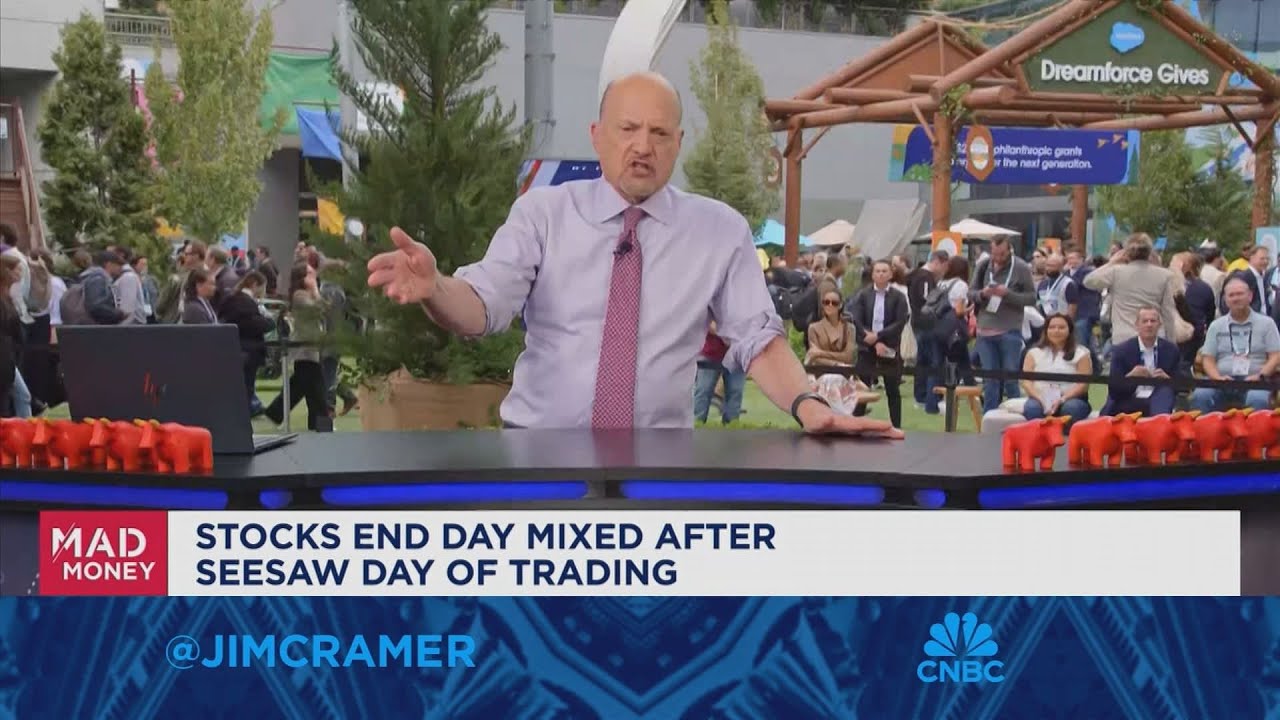In a recent episode of “Mad Money,” Jim Cramer discusses the disparity between the excitement surrounding artificial intelligence (AI) in the stock market and its limited impact on the broader economy, cautioning against the hype and exaggeration often associated with AI claims. He encourages viewers to critically evaluate AI initiatives and focus on actionable insights for investment, rather than getting swept up in market trends.
In a recent episode of “Mad Money,” Jim Cramer discusses the current state of artificial intelligence (AI) in the market and its actual impact on the economy. He emphasizes that while AI has generated significant excitement and buzz in the stock market, it has not yet made a substantial impact on the broader economy. Cramer expresses his intention to differentiate between genuine AI advancements and the hype surrounding them, suggesting that there is more exaggeration than reality in many claims about AI’s capabilities.
Cramer acknowledges the volatility in the stock market, noting fluctuations in major indices like the S&P and NASDAQ. He highlights the importance of understanding the direction of interest rates, which are expected to fluctuate, and advises viewers not to overthink market movements. Instead, he encourages focusing on actionable insights that can lead to profitable investments, particularly in the realm of AI.
During his exploration of AI at the Dreamforce festival, Cramer reflects on the practical applications of AI technology. He points out that while there are some use cases for AI, particularly in corporate cost-saving measures, these applications tend to be less glamorous and do not live up to the revolutionary expectations set by many commentators. This has led to skepticism about whether the current AI trend is a bubble.
Cramer also critiques the common narrative among CEOs who claim to have AI strategies. He suggests that these statements often feel like boilerplate responses rather than genuine strategies that yield significant returns. This disconnect between expectations and reality raises questions about the effectiveness of AI initiatives in driving real economic growth.
In conclusion, Cramer urges viewers to be cautious about the AI hype and to critically evaluate the claims made by companies regarding their AI capabilities. He emphasizes the need for a more grounded understanding of what AI can realistically achieve in the economy, rather than getting swept up in the excitement of the stock market. By doing so, investors can make more informed decisions and potentially capitalize on legitimate opportunities in the AI space.
